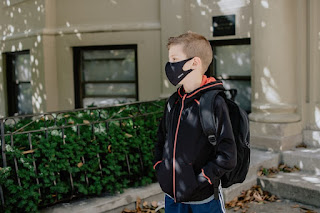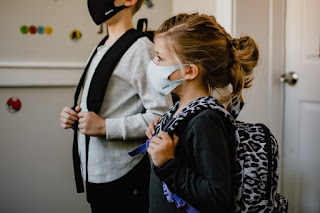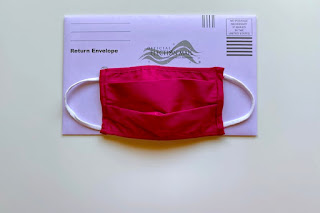The COVID-19 disease has been a deadly one, and people are doing all they can to beat it or prevent themselves from getting infected. One of the simplest things people can do to stay away from this deadly disease is to wear a mask. Wearing a mask has become so important that even children know they have to wear one when they go out. Here we have a look at what is the outcome of children wearing masks and find out have there been any psychological repercussions of the same.
What
Data Says
Though there
have been limited studies that evaluate the isolated effectiveness of wearing masks
in children, several studies have unveiled that mask mandates in schools are
associated with lower incidents of SARS-Cov-2. Wearing masks for outdoor
sporting events doesn't seem to be beneficial.
Though
there is little research available regarding mask-wearing behaviour and
compliance to the same by children, data does show that adherence to mask
policies was high in children, and the uptake increased with age.
Psychological
Repercussions of Wearing Masks
The
Psychological Repercussions of wearing masks in children is something we should
all know about. The data of three different studies was examined recently.
One study
unveiled that there was a decrease in psychological impacts when children wear
masks.
A study
conducted on school children in China mentioned that decreased frequency of
mask use was associated with higher levels f psychological distress.
In a survey
of parents that was organized in Germany, about 46- 68 % respondents said that
children reported at least one impairment when they had to wear masks. The most
common complaint was irritability, and it was followed by headache, difficulty
concentrating, less happiness, reluctance in going to school, malaise, impaired
learning and fatigue or drowsiness.
Children
wore masks for an average of 270 minutes a day. There was no way to be sure
that the impairments were related to wearing masks or not.
In a survey
conducted on 2,954 parents of school-going children in France, more than 45
percent of respondents reported that there were unspecified changes in the mood
of their children. More than 80 percent of parents stated that their children
felt embarrassed when they wore a mask.
Mask
wearing has helped reduce the incidence of SARS-CoV-2 infections in schools.
Studies have shown there the levels of transmission were low when masks were
implemented. However, the independent impact of mask-wearing was not found as
the schools also had other measures to prevent and control the spread of the
infection.
The
compliance increased with age in children. More research is required to know
the exact psychological impact of mask-wearing on children.
If you can't
get your kid to wear a mask, then here
are 5 things you can try to make things easier for yourself and your children.
Also, here
are a few common mask myth busters about kids and face masks that will probably
answer all your questions.
by Shruti , CNS Canadian News Source
Source:
https://www.publichealthontario.ca/-/media/documents/ncov/covid-wwksf/2021/08/wwksf-wearing-masks-children.pdf?sc_lang=en



